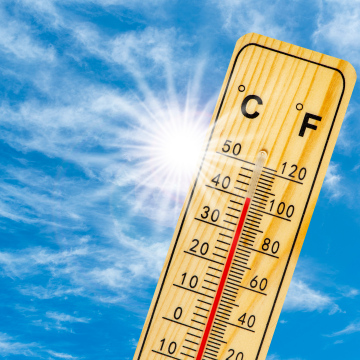
The US Center for Disease Control estimates that every year around 300 people in the US die from heat-related ailments. In addition, thousands of American citizens suffer from dehydration, heat stroke, and heat exhaustion. Summer draws people, including seniors, outside to enjoy the sunshine and outdoor activities with family and friends. Senior citizens are more susceptible to the effects of heat as their bodies return to normal slowly, and their bodies’ cooling mechanism is not as efficient as younger people. Hence seniors should be well aware of the health problems related to summer heat and the preventive and safety steps they should take to avoid these problems.
The first thing to know is that the faster you move, the faster your body gets heated up. This is why seniors should take it slow in the summer, especially when it is hot. All outdoor activities should be planned for early mornings when it is cooler. Use shaded areas under trees or covered porches as much as possible. If possible, air conditioning should be used when the temperatures are sweltering, and fans are not enough. If air conditioning is unavailable at home, consider visiting public places like shopping malls, libraries, etc., that have air conditioning.
Proper ventilation is essential so that the temperature and humidity are not very high. Some seniors prefer to keep windows closed for security reasons, even when a cool breeze is blowing. This problem can be easily solved by installing safety latches for windows so that they cannot be opened from the outside but will allow air to enter. They are inexpensive and bought at local hardware stores.
Dehydration from the body accelerates during the summer months, and some medications that create a loss of fluid and electrolytes from the body, as side effects, can prove dangerous. Seniors and others should always check with their doctors and pharmacists to find out if the prescribed medications have any such side effects. It has been found that some diuretics, antibiotics, and other medications can slow down the body’s natural capacity to control body temperature. Seniors who are on low carbohydrate diets should be careful and take a lot of fluids, as the extra protein in their diets can cause the body to get heated up quickly. Everyone should also take extra fluids during summer to compensate for dehydration.
Seniors should plan ahead for outings. Everyone, especially seniors, should wear light-colored, loose-fitting, cool clothing (preferably cotton) and use head coverings like hats or caps. Their skin is sensitive, and they should use high SPF sunblock (30+) and avoid direct sun as much as possible by seeking out shaded spots. Seniors should avoid caffeine and alcoholic beverages as much as possible as they accelerate dehydration. Drinking just plain water may be inadequate as the body also loses sodium and potassium salts through sweating. The popular sports drinks can be used for this purpose, or you can drink a homemade one.
The symptoms of heat stroke include a strong pulse, body temperature above 104 °F, hot, dry skin, and mental confusion. Be aware of exhaustion symptoms, including mild nausea, lightheadedness, faint-headedness, vomiting, clammy or cold hands, and excessive sweating. Contact your local medical emergency team or 911 immediately when heat stroke symptoms are detected, as this situation calls for immediate medical attention. In the meantime, keep giving rehydrating fluids.
These summer safety tips for senior citizens can help prevent most heat-related health problems.
Heat waves can be deadly for seniors. If you know of any older people living in homes without air conditioning, check on

